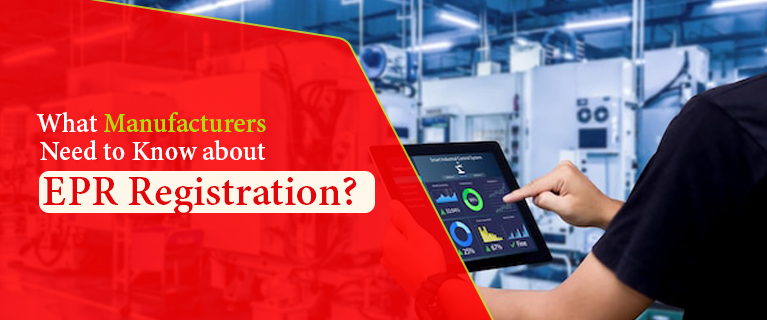Significance Of EPR Registration For Importers
In the globalized economy, international trade plays a vital role in driving economic growth and providing consumers with a diverse range of products. Importing goods from other countries can open up new market opportunities and offer cost-effective sourcing solutions. However, to streamline imports and ensure environmental compliance, many countries require businesses to undergo EPR (Extended Producer Responsibility) registration for import. In this blog, we will explore the concept of EPR registration for import, its significance, and the process involved.
Understanding Extended Producer Responsibility (EPR)
Extended Producer Responsibility (EPR) is a policy approach where producers, importers, and brand owners are held accountable for the environmental impact of their products throughout their lifecycle, including post-consumer waste management. EPR programs aim to promote sustainable consumption, minimize waste generation, and encourage the recycling and responsible disposal of products. In order to ensure proper waste management, the government imposes EPR registration on the producers and the consumers.
Significance of EPR Registration for Import
1. Environmental Protection: EPR registration for import is a significant step towards environmental protection and sustainable waste management. By ensuring that importers are responsible for the environmental impact of their products, it encourages them to adopt eco-friendly practices and promote recycling and proper disposal of waste.
2. Resource Conservation: Importers, being held accountable for their products' end-of-life, are incentivized to design products that are easier to recycle and use resources efficiently. This can lead to the conservation of valuable resources and reduced strain on the environment.
3. Waste Reduction: EPR registration encourages importers to implement waste reduction strategies and promote the reuse and recycling of products. This can lead to a reduction in the overall waste generated, contributing to a cleaner and healthier environment.
4. Legal Compliance: Many countries have mandated EPR registration for import as part of their environmental policies and regulations. Complying with EPR requirements is essential to avoid legal penalties and ensure smooth import operations.
5. Market Access: EPR registration can open up market access for importers, as some countries may restrict or regulate imports based on EPR compliance. By obtaining EPR registration, importers can expand their market reach and access new opportunities.
Read Also This - How EPR Services Ensure Sustainable PracticesConclusion
EPR registration for import is an essential step towards promoting environmental protection and sustainable waste management. By holding importers accountable for the lifecycle of their products, EPR regulations encourage eco-friendly practices, waste reduction, and resource conservation. For importers, complying with EPR requirements not only ensures legal compliance but also opens up market access and opportunities in countries with stringent environmental policies.
Importers must invest time and effort in understanding the specific EPR regulations in their target import markets and fulfill the registration process diligently. Engaging experts in environmental compliance and legal aspects can simplify the process and ensure seamless compliance with EPR requirements. As responsible global citizens, importers play a crucial role in preserving the environment, and EPR registration is a significant step towards sustainable and responsible import practices.




Comments
Post a Comment